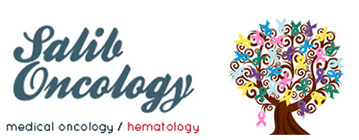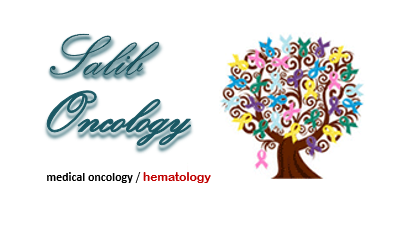About Chemotherapy
Please contact us today if you have further questions or wish to learn more about your course of treatment. Remember, we are always here to help.
How Chemotherapy Treats Cancer
Chemotherapy is used both as a way to “cure” cancer and to alleviate some of the symptoms from cancerous tumors. The therapy works by interrupting cell growth, killing cancer cells, and shrinking tumors. Depending on the type of cancer you have and its progression, you may receive chemotherapy before surgery or after it.
There are many different types of chemotherapy drugs, which target cells at different stages of growth. Because cancer cells split and spread relatively quickly, chemotherapy is often an excellent way to slow or stop their growth while leaving most healthy cells alone. However, chemotherapy drugs do not discriminate between cancer cells and healthy cells in the body that happen to grow and split quickly. This leads to many of chemotherapy’s side effects.
Side Effects of Chemotherapy
The first line of side effects of chemotherapy is likely to be felt in areas of the body that have quick-splitting, quick-growing cells. These cells include the ones on the inside of your mouth, inside your intestines, and in your hair follicles. Because of this, many patients receiving chemotherapy experience some side effects. Common side effects include mouth sores, nausea, and hair loss.
However, the most common side effect of chemotherapy is fatigue or a feeling of exhaustion. Patients receiving chemotherapy should plan ahead for this particular side effect, asking for time off from work and asking for help around the house and running errands on the days surrounding their treatment.
What to Expect When Receiving Chemotherapy
Chemotherapy is different for everyone. Some patients experience many side effects; others experience relatively few. Some respond to treatment quickly and well, and others do not. What is important to remember is that our doctors and medical staff are carefully monitoring your response to the treatment and helping you through the side effects. We are flexible and are here to make sure you get the best treatment for your particular situation.
That being said, there are many ways that your chemotherapy might be administered. Some patients are able to take oral pills or use a topical cream. Other patients need their chemotherapy administered directly into their bloodstream. This can be intravenously (into a vein) or intra-arterially (into an artery). Still other patients need their chemotherapy injected into a muscle, fat, the tissues between the brain and the spinal cord, or into their abdomen. We may also need to use a catheter, port, or pump to properly administer the drugs.
No matter what type of chemotherapy you require, our doctors, nurses, and other medical staff are here to walk you through the process. We will clearly explain to you the type of treatment we recommend that you receive, how long it will last, and the kinds of side effects that you should expect. We’ll help you prepare for treatment and monitor your response to it every step of the way. Your health and comfort always come first to us.







